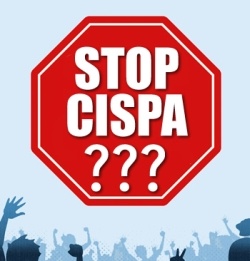 Microsoft, who was long a supporter of the CISPA bill, has now done an about-face.
Microsoft, who was long a supporter of the CISPA bill, has now done an about-face.
The software giant has said they can only support laws that allow "us to honor the privacy and security promises we make to our customers." Additionally, the company wants to "ensure the final legislation helps to tackle the real threat of cybercrime while protecting consumer privacy."
In November, when CISPA was introduced, Microsoft VP for government affairs Fred Humphries publicly stated they wanted to "commend CISPA's sponsors and Microsoft applauds their leadership." He later added: "This bill is an important first step towards addressing significant problems in cyber security." Clearly they are no longer as excited by the law.
Microsoft's new statement (via Cnet):
In November, when CISPA was introduced, Microsoft VP for government affairs Fred Humphries publicly stated they wanted to "commend CISPA's sponsors and Microsoft applauds their leadership." He later added: "This bill is an important first step towards addressing significant problems in cyber security." Clearly they are no longer as excited by the law.
Microsoft's new statement (via Cnet):
"Microsoft has previously stated support for efforts to improve cyber security, and sharing threat information is an important component of those efforts. Improvements to the way this information is shared would help companies better protect customers, and online services in the United States and around the world from criminal attack. Microsoft believes that any proposed legislation should facilitate the voluntary sharing of cyber threat information in a manner that allows us to honor the privacy and security promises we make to our customers.
Legislation passed by the House of Representatives yesterday is a first step in this legislative process. Since November, there has been active, constructive dialogue to identify and address concerns about the House bill, and several important changes were incorporated. We look forward to continuing to work with members of Congress, consumer groups, the civil liberties community and industry colleagues as the debate moves to the Senate to ensure the final legislation helps to tackle the real threat of cybercrime while protecting consumer privacy."














